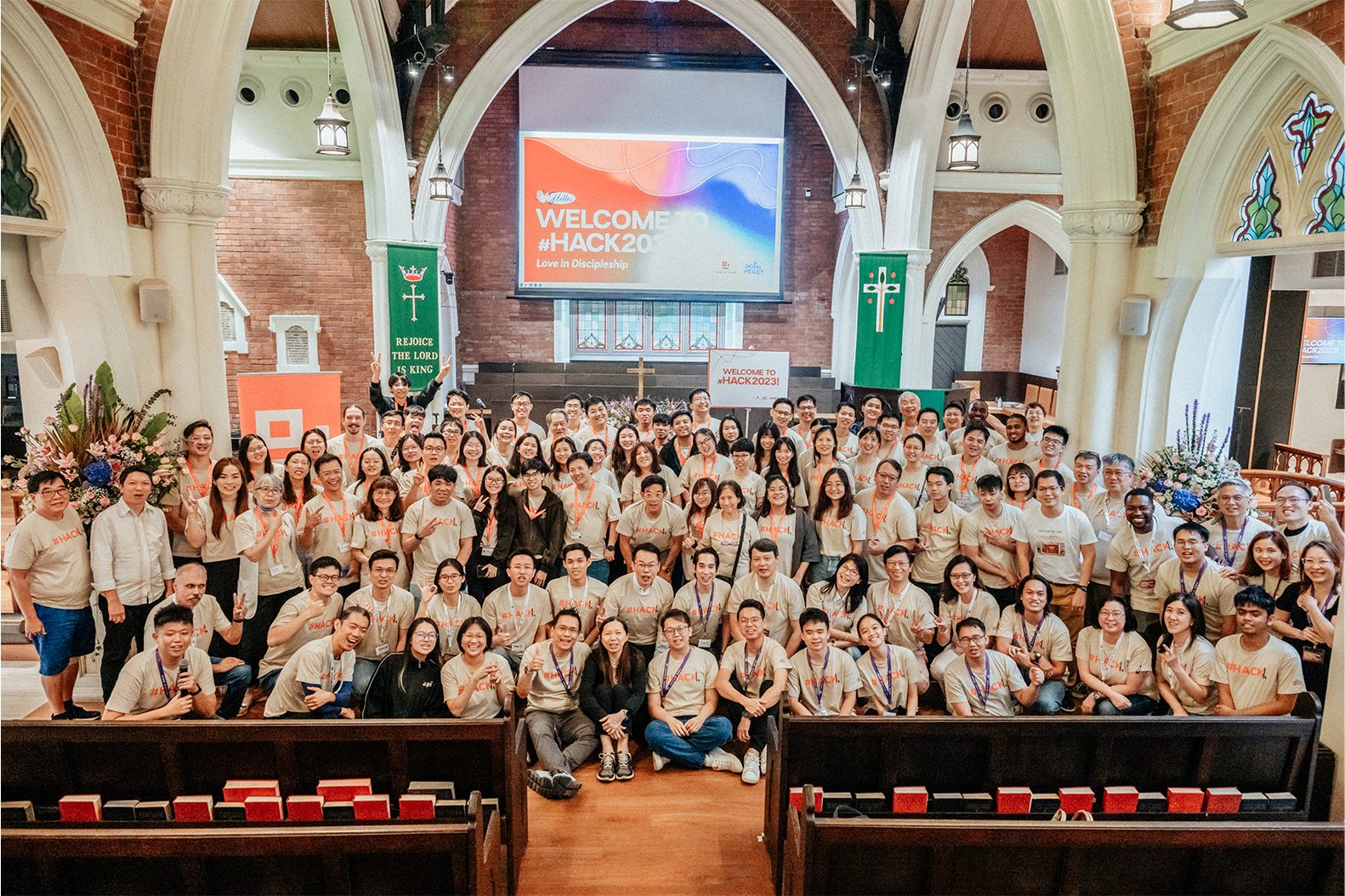I had been praying for the right work opportunity after ‘A’ levels to earn some pocket money and also start on a personal missional lifestyle: To share the Gospel with my colleagues as salt and light in my workplace.
I was eventually introduced by a female friend to a Thai restaurant in order to take over her part-time position as a waitress. She was going to be starting a new job elsewhere soon and assured me that it would be a fun and dynamic environment with nice colleagues.
I was the only woman and Chinese Singaporean at my workplace, but I was quite excited at the prospect of being able to share about God to my new Thai friends, having recently started learning Thai for future mission work.
There were a few newcomers besides me, so we had a welcome party after work in the first week. Out of nowhere, one of the older men started joking about how he visits prostitutes. Suddenly, I could feel eyes on me. Then another colleague blurted out, in Thai, “Too bad she’s young. I would pay a high price for girls like her at the brothel.”
He downed another shot. I hadn’t drunk much, but my face was on fire. I didn’t know how to respond. They didn’t think I’d understood, but even with my limited Thai, I had.
I wanted to believe it was just the alcohol speaking, but later incidents proved otherwise.
There were situations where more than one of us servers were squashed against the cash register, trying to settle the bill. This happened whenever the restaurant was particularly crowded.
I was taking out some change for the customer when I felt one male server standing very close behind me. He pressed against me, arms swooping between mine and intercepting me to the cash register. “Sorry, customer is rushing me,” he mumbled in my ear as he swiftly retreated, but not without grazing my chest and slapping my butt.
I was afraid to speak out for fear of being too sensitive or confrontational. The other guys didn’t think it was a big deal at all.
I was unsure if it was an accident, or if he was treating me like a “bro”. Did “bro’s” do that to each other? In the end, I decided to dismiss it as he didn’t seem to think much about the matter. Also, I was afraid to speak out for fear of being too sensitive or confrontational. The other guys didn’t think it was a big deal at all.
This wasn’t the first time I’d faced some form of sexual harassment. It’d happened to me before on public transport and with people I knew and trusted. Somewhere inside me, I thought I ought to accept all these incidences as part of my inevitable reality as a woman.
When I tried to tell others about it, the common responses I got were:
“Are you sure…? Maybe it was accidental.”
“You? Sexual harassment? They must’ve been blind …”
“Why would guys want to touch you?”
“Stop being dramatic .. you also not that pretty.”
“You look like a man leh.. are they gay?”
I decided to stick it out for another few months.
I was working the closing shift when my male colleagues were making sexually suggestive jokes, directed at a female patron just out of earshot. Unable to stand the coarseness any longer, I asked them to stop it.
They looked at me and burst out laughing, saying, “Just a joke what … You also have nothing for us to look at so we look at other people lah.” They proceeded to spend the next few hours making fun of me, accusing me of only liking Caucasian men because of my bigger build.
I couldn’t get openly angry because there were customers around, and neither could I leave if I wanted to be paid. I had prayed to God for a resolution, for some sort of way to end all of this. But it seemed like He hadn’t changed their minds and made them stop.

In fact, it only got worse. For some reason, that night, the boss came by after closing and requested to speak to me. I thought that it might be a good time to broach the topic of my colleagues’ behaviour. But before I could start, he pointed to my baggy work-wear and asked, “Why don’t you wear tighter jeans? You’ll attract more male customers that way … You’re the only girl here.”
They all laughed. He beckoned me to sit beside him as they smoked and drank, and again I tried to share about the uncomfortable experiences with my male colleagues. Midway through, he swivelled towards me, a wry smile on his face.
“Have you ever had sex?” He asked. The table roared. “She’s Christian and definitely a virgin!” Someone else piped in. I stood up in shock, holding back tears in my eyes; I had to get away from these people. But my boss gripped my arm tightly, insisting he was just joking and would drive me home afterwards.
As I fled the scene, my head was spinning and all I could think was, men will be men.

Coupled with my past experiences of being sexually assaulted, I was disillusioned and angered. I felt entitled to my bitterness.
There was a point where I even questioned, “Why am I even praying for them? They deserve to go to hell.” I know Christians are continually called to be counterculturally meek and loving, but is this what I have to put up with? Is this really what I’ve been called to do? To love these people in spite of this?
In the news, we hear of horrifying reports of sexual harassment and abuse. The Harvey Weinstein scandal brings to mind every incident where I had been sexually harassed, assaulted and violated. And whenever I remember, every suppressed emotion that I felt in those moments rises like bile from inside, choking me with violent intensity.
But in my quiet time of prayer one day, I heard, “Even then, love.” I was shaken and broken to tears. Yes, I saw myself in those memories, hurt and confused. But for the first time, I was looking at my pain through His perspective. I felt the Father’s love overflow in my heart.
“Come to me.”
And then I knew: He had been there, in every moment, in every situation, weeping with me.
What does love look like when you’ve been violated?
What does forgiveness look like when you’ve been wronged?
What does redemption look like, in a disordered, perverse and sinful world?
Christ-like meekness doesn’t mean aggressive confrontation, neither does it mean to suffer in silence.
Whether you’re a man or woman, whether you’re facing this for the first time or to the point where you think you’re desensitised to it – it doesn’t make sexual harassment or abuse okay. If you’ve felt uncomfortable in a situation that you were unable to escape, it is not your fault and you are not alone.
In the darkest moments of self-condemnation, bitterness and shame, I find comfort that Jonah prayed to the Lord his God from the stomach of the fish.
“I called out of my distress to the LORD, and He answered me. I cried for help from the depth of Sheol; You heard my voice.” (Jonah 2:2)
God can hear the words you can’t say. Your suffering will be redressed, even if you don’t get to see it for yourself. Injustice will not go unpunished. Vengeance is His, and He will repay (Romans 12:19).
Ashley has since left her waitressing job and found a safe and loving work environment. If you’ve ever been sexually abused, assaulted or harassed, seek help – be it reporting your case to the authorities or speaking to a trusted loved one. Your well-being is top priority.









